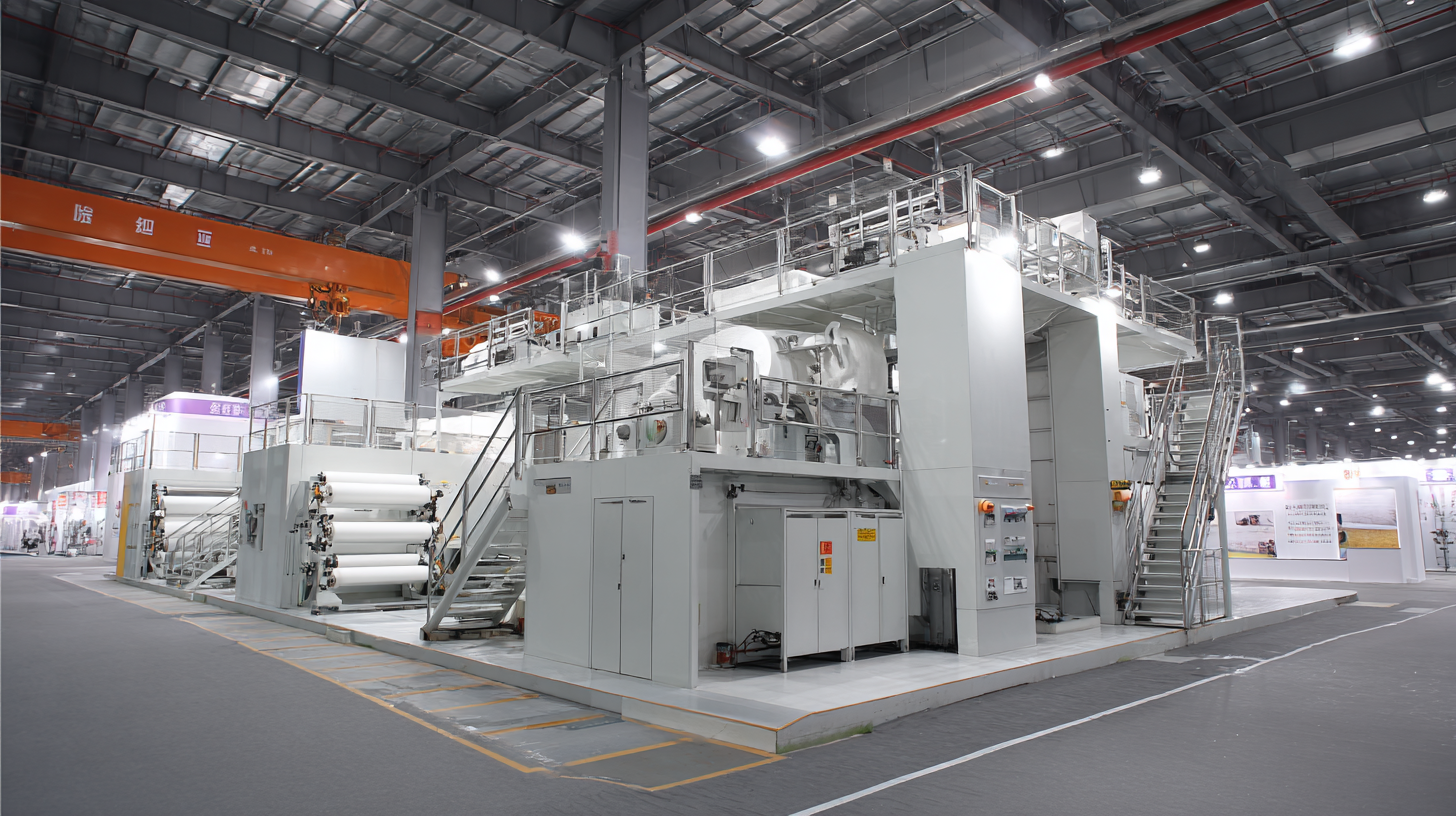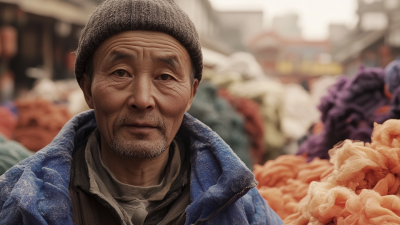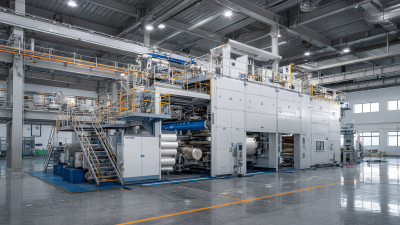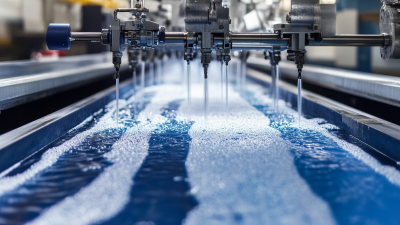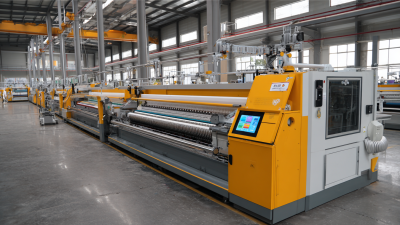Leave Your Message
As we approach the 138th Canton Fair in 2025, the spotlight is set on the dynamic realm of Automatic Nonwoven Equipment. This event not only serves as a global platform for trade and innovation but also highlights the advancements and trends in the nonwoven fabric industry. Automatic Nonwoven Equipment represents a significant technological leap in production efficiency, quality, and sustainability, addressing the increasing demand for nonwoven materials in various sectors, including healthcare, hygiene, and automotive industries.
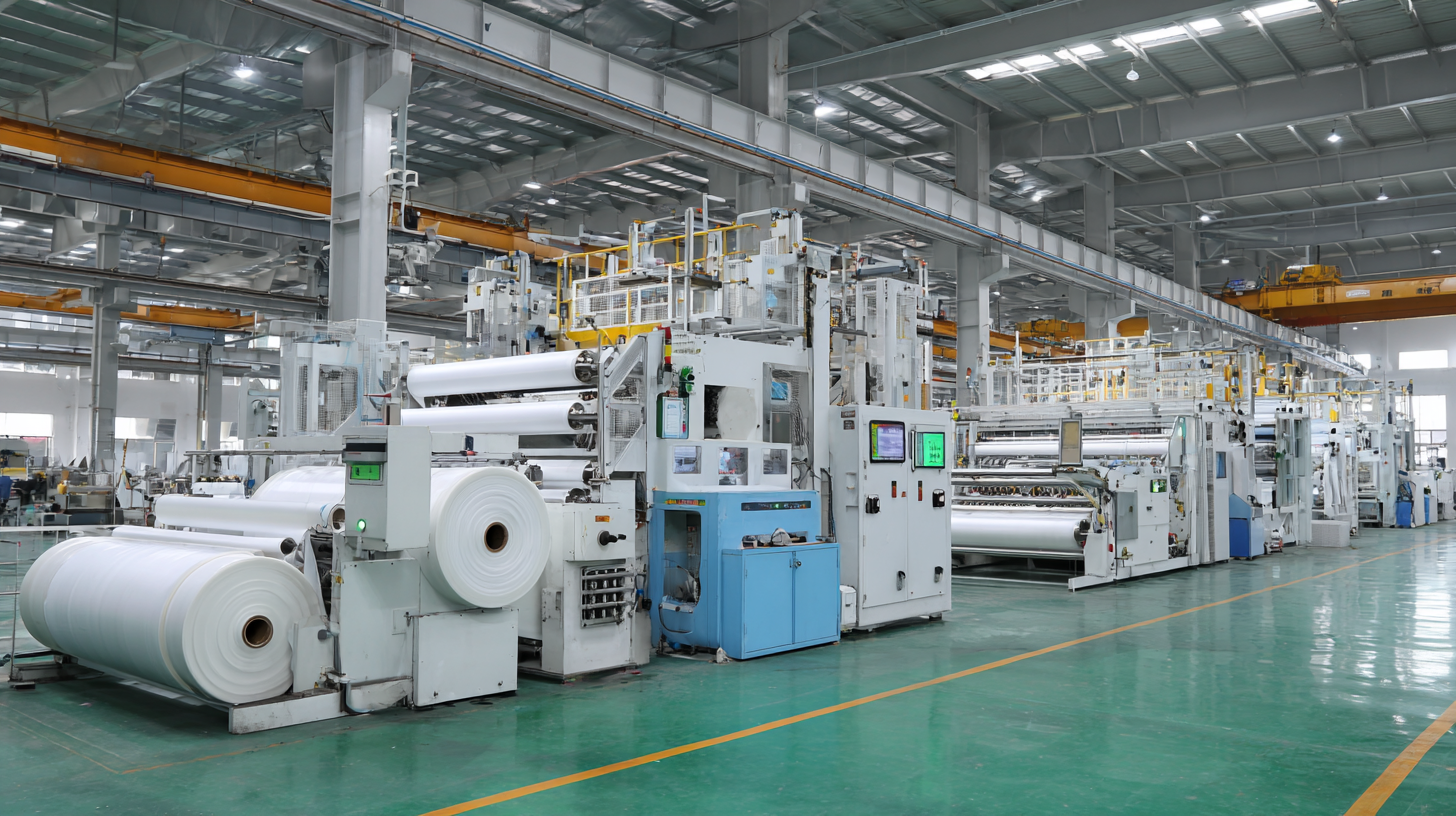
Attendees and exhibitors alike will have the opportunity to explore groundbreaking machinery, networking possibilities, and insightful discussions that revolve around the future potential of this technology. With a focus on automation, companies are poised to enhance their operational capabilities and meet the evolving market needs, making the 138th Canton Fair a pivotal event for stakeholders in the nonwoven sector.
At the 138th Canton Fair in 2025, the spotlight on automatic nonwoven equipment highlights a transformative trend in the textile industry. The increasing demand for efficient and sustainable manufacturing processes has spurred innovation, leading to the development of advanced machinery that not only boosts production rates but also minimizes waste. Exhibitors are showcasing cutting-edge technologies, including AI-powered systems that enhance product quality through real-time monitoring and adjustments.
Moreover, the integration of eco-friendly practices in automatic nonwoven equipment is gaining traction. Manufacturers are exploring alternatives to traditional materials and processes, focusing on biodegradable and recycled inputs. This shift reflects a growing commitment to sustainability that resonates well with consumers and regulatory bodies alike. The Canton Fair serves as a platform for industry leaders to share insights, discuss future prospects, and forge collaborations that will shape the landscape of nonwoven textiles in the coming years.
The market for nonwoven fabrics is poised for significant growth, with projections indicating that the fiberglass fabric segment alone will reach USD 13.17 billion by 2029. This surge is driven by increasing demand across various industries, including automotive, construction, and healthcare. Industry reports reveal that innovations in manufacturing processes and materials are enhancing the performance and applications of nonwoven fabrics, further stimulating market expansion.
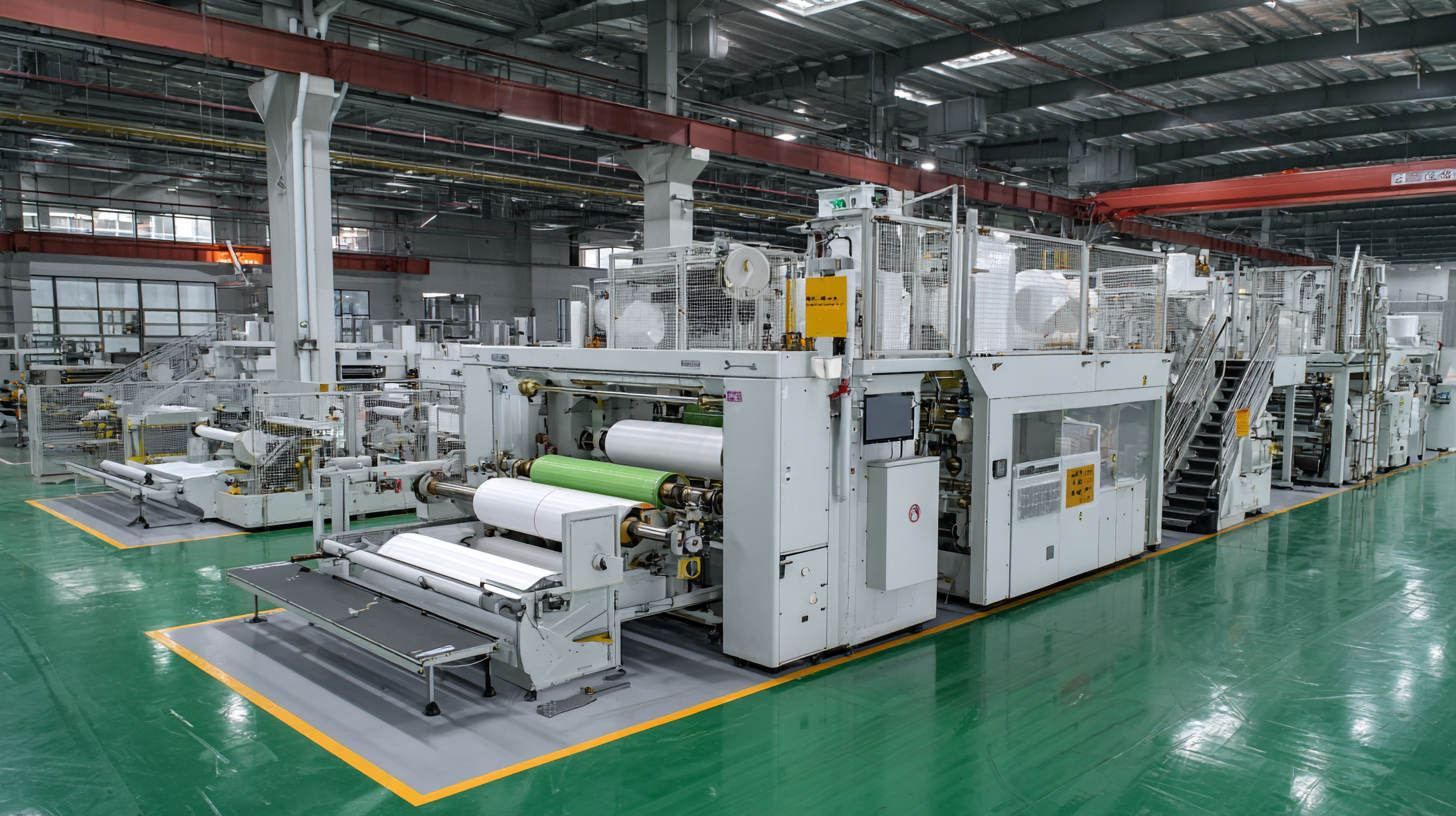
At the 138th Canton Fair in 2025, advancements in automatic nonwoven equipment will take center stage, offering manufacturers unprecedented capabilities for efficient production. The integration of automation technologies is expected to streamline operations, reduce waste, and improve product quality. As industry stakeholders gather to explore these innovations, they will gain valuable insights into market trends and opportunities for growth in the nonwoven sector, particularly in relation to fiberglass and other specialized fabric markets.
The 138th Canton Fair in 2025 is set to showcase groundbreaking advancements in automatic nonwoven equipment, revolutionizing the landscape of production. These technological innovations are not merely incremental improvements; they fundamentally enhance production efficiency and product quality. Automation in this sector is increasingly integrating smart technologies, such as AI and robotics, which streamline manufacturing processes, reduce human error, and optimize resource allocation.
Moreover, the shift towards automated systems in nonwoven production leads to significant cost savings and faster turnaround times. This efficiency allows manufacturers to respond more swiftly to market demands while maintaining high standards of quality control. The fair will provide a platform for industry leaders to demonstrate these advancements, offering insights into how automated equipment is reshaping supply chains and driving sustainable practices. As we explore these developments, it becomes clear that the future of nonwoven equipment is not just about speed, but also about producing high-quality products that meet the evolving needs of consumers in an increasingly competitive marketplace.
| Aspect | Description | Impact on Production Efficiency (%) | Impact on Quality |
|---|---|---|---|
| Automation in Material Handling | Increased speed and accuracy in material transport through automated systems. | 25% | Improved consistency in material input quality. |
| Smart Monitoring Systems | Real-time monitoring of production parameters to minimize errors. | 30% | Enhanced product quality through immediate corrective actions. |
| Predictive Maintenance | Using AI to predict equipment failures before they occur. | 20% | Reduction in defects due to fewer unexpected downtimes. |
| Integrated Production Control | Seamless integration of machines to optimize workflow. | 35% | Higher end-product uniformity and reduced quality variance. |
| Robotic Process Automation | Robots performing repetitive tasks, improving speed and precision. | 40% | Superior accuracy in operations leading to consistent quality. |
As the nonwoven manufacturing industry evolves, sustainability remains a critical focus, particularly highlighted by innovations in eco-friendly materials and processes. Recent studies underscore the potential of a circular economy that transforms textile waste into sustainable soil additives. This approach not only reduces landfill waste but also enhances soil health, showcasing a promising methodology for resource management in the textile sector.
Further advancements include the development of biodegradable water-absorbing geocomposites, known as BioWAG. This innovative technology is designed to save water and support vegetation growth, addressing both environmental concerns and agricultural needs. With consumers increasingly engaging with nonwoven materials—found in clothing, facemasks, and everyday items—the demand for sustainable solutions is soaring.
According to industry reports, the market for bio-based and recycled nonwovens is anticipated to grow significantly, driven by consumer preferences for sustainable options, indicating a strong future for eco-conscious practices in textiles.
The 138th Canton Fair in 2025 presents a unique platform for professionals in the nonwoven industry to forge valuable connections. With the ongoing advancements in automatic nonwoven equipment, attendees will have the opportunity to explore innovative technologies and solutions that can significantly enhance production efficiency and sustainability. Networking at such a large-scale event allows exhibitors and visitors alike to share insights, challenges, and technological enhancements that shape the future of the nonwoven sector.
Similar to the recent Index23 fair in Switzerland, which emphasized innovation through collaborative challenges, the Canton Fair aims to foster partnerships among key stakeholders in the nonwoven landscape. Participants can engage in discussions that focus on industry trends, market demands, and next-generation equipment. By building strong networks, companies can not only address current challenges but also co-create future solutions that advance the nonwoven industry on a global scale.
